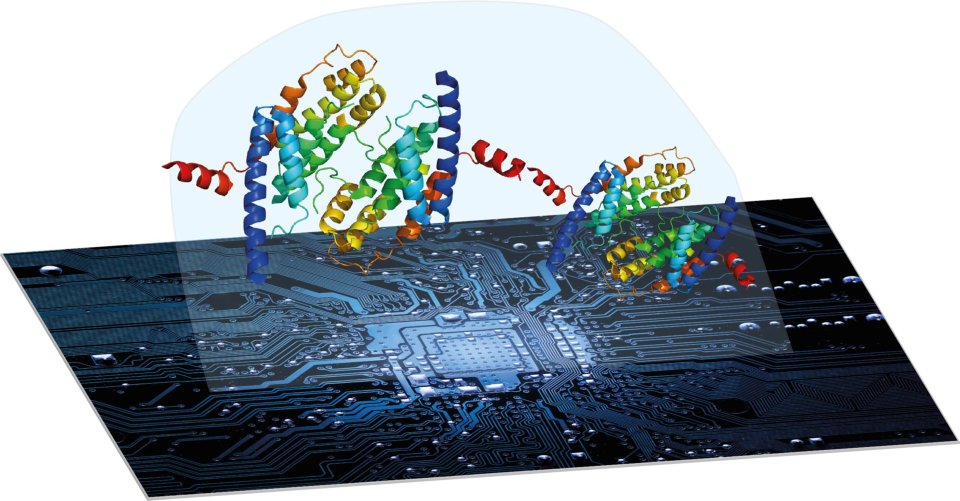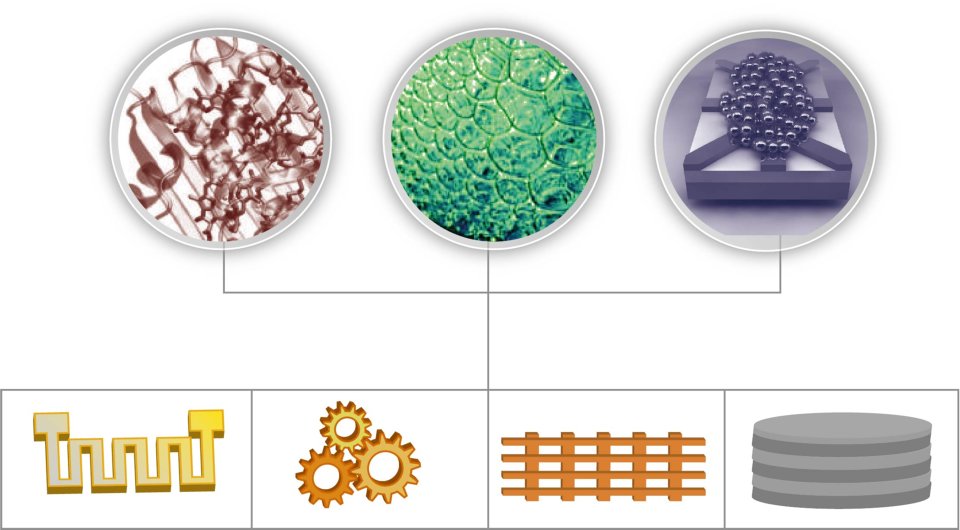A big success for UT strategic partner WWU Münster: the German Research Foundation DFG (Deutsche Forschungsgemeinschaft) stimulates with more than 10 Million euro a new Collaborative Research Center (Sonderforschungsbereich, SFB). The project with the title “Intelligent matter: From responsive to adaptive nanosystems” starts in January 2021 and involves a close collaboration with the Center for Brain-Inspired Nano Systems (BRAINS) at the University of Twente.
Over 10 million for Münster-Twente collaboration
The Center for Brain-Inspired Nano Systems (BRAINS) participates in a newly established Collaborative Research Center (CRC) on Intelligent Matter at the WWU Münster
 A big success for UT strategic partner Westfälische Wilhelms-Universität Münster (WWU): the German Research Foundation DFG (Deutsche Forschungsgemeinschaft) is funding a new special research area (Sonderforschungsbereich, SFB). The new research alliance with the title "Intelligent Matter: From Responsive to Adaptive Nanosystems" receives funding of more than 10 million euros, and involves a close collaboration with the Center for Brain-Inspired Nano Systems (BRAINS) at the University of Twente. The project will start in January 2021 and will initially run for four years. With this new research alliance, the strategic partnership between the University of Münster and the University of Twente will be significantly strengthened.
A big success for UT strategic partner Westfälische Wilhelms-Universität Münster (WWU): the German Research Foundation DFG (Deutsche Forschungsgemeinschaft) is funding a new special research area (Sonderforschungsbereich, SFB). The new research alliance with the title "Intelligent Matter: From Responsive to Adaptive Nanosystems" receives funding of more than 10 million euros, and involves a close collaboration with the Center for Brain-Inspired Nano Systems (BRAINS) at the University of Twente. The project will start in January 2021 and will initially run for four years. With this new research alliance, the strategic partnership between the University of Münster and the University of Twente will be significantly strengthened.
Intelligence is the ability to perceive information and to retain it as knowledge to be applied towards adaptive behaviour in a changing environment. The CRC „Intelligent matter: From responsive to adaptive nanosystems“ is inspired by the question whether synthetic matter can provide artificial building blocks to enable intelligent material properties. Such intelligent matter would provide entirely new opportunities for instance for the development of artificial skin, soft robotics with adaptive tactility, and brain-inspired computing with reduced energy consumption. Intelligent matter requires an integrated system of materials and nanoscale components. Hence, the central scientific question of this CRC is: How does intelligent behaviour emerge in a system of nanoscale building blocks that operate collectively?
 “The objectives of this CRC match very well with those of BRAINS, and we were delighted when we were asked to join this effort by our Münster colleagues”, says BRAINS co-director Prof. Wilfred van der Wiel, who holds a second appointment at the Institute of Physics in Münster. “Inspired by the co-location of logic and memory, robustness against local defects, hyper-connectivity and massively parallel processing in the human brain, we plan to develop intelligent matter at the nanoscale that can interact with its environment, self-regulates its properties and learns from the input it receives.” BRAINS attracted worldwide attention earlier this year with its groundbreaking work on computing nanoscale networks (see Brain-like network uses disorder to detect order and ‘Brain inspired' network becomes a fast learner). “It was a ‘no brainer’ to ask BRAINS on board”, according to Prof. Bart Jan Ravoo, speaker of the new CRC. “Normally, a CRC is fully situated within a German institution, but the added value of the collaboration with Twente was highly appreciated by the selection committee.”
“The objectives of this CRC match very well with those of BRAINS, and we were delighted when we were asked to join this effort by our Münster colleagues”, says BRAINS co-director Prof. Wilfred van der Wiel, who holds a second appointment at the Institute of Physics in Münster. “Inspired by the co-location of logic and memory, robustness against local defects, hyper-connectivity and massively parallel processing in the human brain, we plan to develop intelligent matter at the nanoscale that can interact with its environment, self-regulates its properties and learns from the input it receives.” BRAINS attracted worldwide attention earlier this year with its groundbreaking work on computing nanoscale networks (see Brain-like network uses disorder to detect order and ‘Brain inspired' network becomes a fast learner). “It was a ‘no brainer’ to ask BRAINS on board”, according to Prof. Bart Jan Ravoo, speaker of the new CRC. “Normally, a CRC is fully situated within a German institution, but the added value of the collaboration with Twente was highly appreciated by the selection committee.”
The research team is composed of physicists and chemists and scientists from related disciplines in Münster as well as Twente. The programme combines interdisciplinary fundamental research and innovative applications. Both the University of Münster and the MESA+ Institute for Nanotechnology have excellent infrastructure to realize this programme.
This CRC reinforces the Münster-Twente strategic partnership and will further enhance the excellence and visibility of its core profile area of nanotechnology.
Box
Collaborative Research Centers (CRCs) are prestigious, interdisciplinary research centers at German universities that are funded by the German Research Foundation DFG (Deutsche Forschungsgemeinschaft) and are set up for a period of up to twelve years. They enable the processing of innovative and long-term research projects.
More information:
Prof. W.G. (Wilfred) van der Wiel, W.G.vanderWiel@utwente.nl





